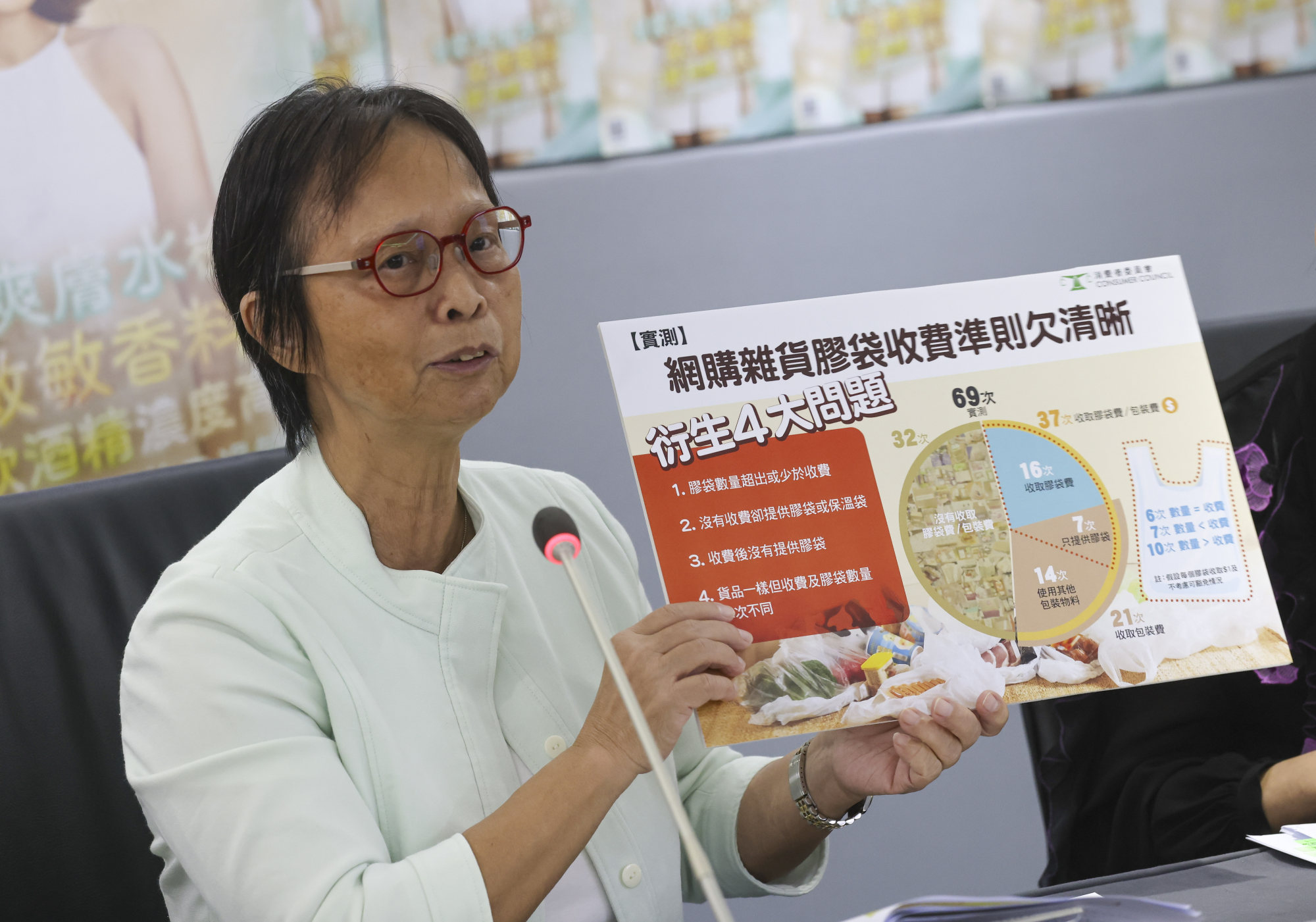
Plastic not fantastic as Hong Kong consumer watchdog finds online stores breach mandatory HK$1 charge for throwaway bags
- Consumer Council highlights five of 11 online retailers checked did not levy the HK$1 per plastic bag charge required by law
- More guidance from government to online stores on use of plastic bags needed, council’s Professor Nora Tam says.
Hong Kong online grocery stores may have broken environmental protection laws by not charging a mandatory HK$1 (13 US cents) fee per plastic bag or by giving too many of them to customers, the city’s consumer watchdog has found.
The watchdog added the government should also provide clearer guidelines for traders to reduce the city’s use of disposable plastics.

Professor Nora Tam Fung-yee, the council’s research and testing committee chairwoman, highlighted consumers in bricks-and-mortar stores could choose not to take a plastic bag.
“Consumers have the right to information and choice. We could choose to not use a plastic bag when visiting a physical store,” she said.
“Why couldn’t we have such an option when shopping online?”
The council explained that stores and platforms used a variety of terms for extra charges, with some using “packaging fee” and “packaging handling fee” to cover paper bags or cartons, which made it tough to check whether the charge of at least HK$1 per plastic bag rule was applied correctly.
It also suggested that online stores and e-commerce platforms should be advised to make their charging policies and calculation rules for plastic bags and packaging clearer.
“To safeguard consumers’ rights to make environmentally friendly choices, the council also recommends the Environmental Protection Department should provide clearer guidelines,” Tam said.
“These include stating the scope and quantity of additional plastic bags and insulated bags to be used by the traders in the course of transportation.”
Retailers, including online ones, are required to charge a minimum of HK$1 for each plastic bag, except where food items are unpackaged.
Apita Uny and DCH Foods gave out plastic bags without charging the levies for all food.
HKTVmall, ParknShop and Yata did the same in some trial orders.
The online stores were checked by council staff, who posed as consumers and carried out 69 trial orders for different types of food between June and early July.
The watchdog also found that 10 of the trial orders provided more plastic bags than the fees charged.
HKTVmall charged HK$2, but used six plastic bags for nine food items.
Three packs of frozen meat were packed in individual flat-top plastic bags, two T-shirt plastic bags were used for canned food, a cup noodle and a bag of crisps and a head of broccoli was packed in its own insulated bag.
HKTVmall told the council that plastic bags and packaging were used to ensure accurate identification of products and delivery as part of its logistics and transport process.
The firm added its collaboration with 5,800 partner shops and suppliers resulted in the use of multiple plastic bags.
DCH Foods said the packaging materials were provided by Foodpanda, which handled its deliveries.
The council received 39 complaints related to plastic bag use between January and July.
In a reply to the Post, a spokeswoman for the Environmental Protection Department said it periodically investigated whether online platforms had failed to properly implement the plastic bag levy by having officers pose as shoppers.
The department would roll out new guidelines on the use of plastic bags for e-commerce platforms and the logistics industry later this year, she said.

